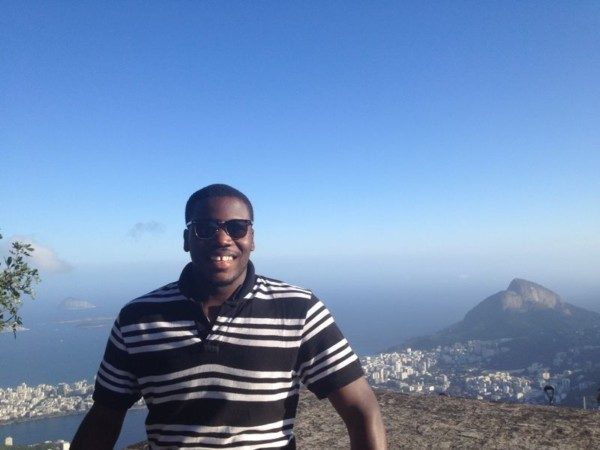Features
Your Better Self with Akanna: 5 Steps to Becoming Your Better Self
 I mentioned in a recent article that I was reading John C. Maxwell’s book, The 5 Levels of Leadership. I recently came across a section where he talks about ‘Level 2 Leadership’ and how to gain other people’s permission to lead them; basically through building relationships with them. He says to “connect with yourself first before trying to connect with others.
I mentioned in a recent article that I was reading John C. Maxwell’s book, The 5 Levels of Leadership. I recently came across a section where he talks about ‘Level 2 Leadership’ and how to gain other people’s permission to lead them; basically through building relationships with them. He says to “connect with yourself first before trying to connect with others.
I thought to myself, we’re basically on this earth to connect. I’ve written about how our purpose is to connect, communicate, collaborate and create. That’s how the world goes around. That’s how things are built. That’s how life is maintained. So, if we are to become valuable people on earth, we should become good ‘connectors’ because everything starts with connecting – building relationships with others. And according to Maxwell, “the work in relationship building always has to start with yourself.”
You have to work on yourself. You have to improve yourself before you reach out to connect with others. You have to become your better self. And to do this, you need to improve these 5 things about yourself, step by step.
Step #1: Self-Awareness
We are usually good at sizing up everybody else but not so good at sizing up ourselves. How do you see yourself? What do you even know about yourself? What are your strengths and what are your weaknesses? These are questions we tend to shy away from.
When you wake up in the middle of the night and can’t go back to sleep, these are the kinds of questions you should contemplate in your mind instead of numbing out through a YouTube video or scrolling through your social media news feed.
We run away from asking ourselves these questions because they are hard to face. The truth is usually bitter. But we should ask ourselves. We should also ask others to evaluate us. Learn to understand the way you think, feel and act in every kind of situation by observing yourself in those situations and taking note, and also by playing scenarios in your mind and asking yourself how you would react in those.
Once you’ve understood yourself to a great extent, it is then possible and appropriate for you to forget about yourself and place your focus on others, because you will then relate to other people from a place of strength.
Self-Awareness says: The first person I must know is myself.
Step #2: Self-Image
Self-awareness or getting to know yourself is the first step toward getting along with yourself. You cannot get along with someone you do not know, and that someone could be you too. So you ought to have a good image of yourself that you recognize.
Getting along with yourself means that you know that there are some things about you that you can change and things that you cannot change. And so you change the things you can and accept those you can’t.
Having a healthy self image means that you stop wishing you were endowed with a different gifting or a different personality type, and decide to do something with the one you’ve been endowed with.
I remember back in Secondary School, whenever I was harassed by a bully, I would always wish I were more like someone else, maybe a friend of mine who tolerated no nonsense. Nobody could ‘try’ them. But I had to grow up and realize that I could stand up for myself in my own unique way, according to my own unique personality. And that, generally, the way I see myself is the way others will come to see me. So if I constantly saw myself as a victim, the only people I would eventually attract to myself were bullies and sympathizers.
You have to be aware of how you see yourself first, then proceed to construct a healthier image of yourself, where you become more comfortable in your own skin. You need some Self-Awareness for a healthy Self-Image.
Self-Image says: The first person I must get along with is myself.
Step #3: Self-Honesty
Once you’ve become more self-aware and have painted a more accurate portrait of your self-image in your head, the next step is to be totally honest with yourself on what you see. Face the truth! Don’t lie or pretend to be who you are not. And, most importantly, don’t blame others for who you are. Most people who don’t get anywhere in life have themselves to blame but ironically tend to blame other people than themselves.
Self-honesty is being real. When you ask most people why they like someone, among their list of reasons is usually a variation of “I like him because he’s so real”. That real-ness is self-honesty. It is attractive. It is what people appreciate.
Being yourself; that’s what most people consider humility to be. A rich man sincerely ‘acting rich’ and a poor man sincerely ‘acting poor’. A first-time traveler sincerely marveling at all the sights and taking it all in, and a frequent traveler being sincerely jaded. No acting.
Once you’re honest with yourself, you can tell yourself the truth and not only stop there, but address what needs to be addressed in the most healthy way – improving what needs to be improved and embracing what doesn’t.
Self-Honesty says: The first person to cause me problems is myself.
Step #4: Self-Improvement
Once you’ve been honest with yourself, you can then improve yourself because you have accepted the truth about yourself and what needs to be changed. “If you want to change your life for the better, the first thing you must do is change yourself for the better.”
So once you realize that the first person to cause you problems is you, and you accept that honestly, then you can begin to change whatever it is that causes you to self-sabotage and that, right there, is self-improvement.
Self-Improvement says: The first person I must change is myself.
Step #5: Self-Responsibility
Ultimately, going through steps 1 to 4 would be futile if at the end you are not willing to take responsibility for becoming your better self. You must be willing to let go of victimhood – stop blaming racism, tribalism, sexism, your background, your socio-economic status, and others for your lot in life, and take full responsibility.
Only then can you improve. Blaming those other things will never do anything to improve your life. “If you don’t take responsibility for yourself, then don’t expect your life to become any different from what it is right now.” Every significant accomplishment begins with one person stepping up and committing to making a difference.
Self-Responsibility says: The first person who can make a difference is myself.
Self-responsibility could also be the first step to becoming your better self if you come to think of it. The truth is that becoming your better self is an on-going life journey. It will never come to an end. It’s more like a cycle than a series of steps you take to arrive at a destination. You never ‘arrive’. You’re never done. You’re never perfect. You start from step 1 to 5 and then backwards from step 5 back to 1; again and again and again.
So, you take some Self-Responsibility for your Self-Improvement and develop some Self-Honesty to tell yourself the truth about your Self-Image, which then gives you more Self-Awareness. And from Self-Awareness back again through to step 5.
Learning never ends and becoming your better self never ends also. It is worth it though because one more better-self out there, for people to connect with, will surely make the world a better place even if by only a little.




















